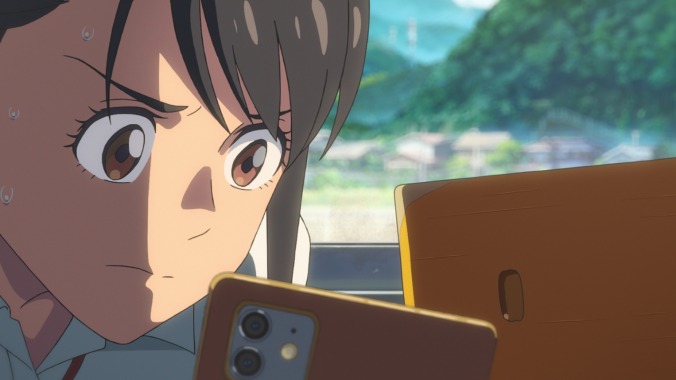Suzume review: An epic fantasy love story between a girl and a talking chair
The director of Your Name. and Weathering With You is back with a movie that's more concerned with its fantasy plot than its fantasy romance

Makoto Shinkai’s Your Name. (2016) and Weathering With You (2019) brilliantly weave together troubled teen romance and apocalyptic stakes, literally turning young love into exactly what it feels like to the people experiencing it: the most important thing in the world. Your Name. sets up the relationship between its two leads as the one thing that can avert a disaster, and Weathering With You pulls the opposite trick—its two main characters choose to love even in the face of unavoidable cosmic horror. What, that film asks, is the point of saving the world if it requires you to sacrifice everything that makes the world good in the first place?
Suzume, written and directed by Shinkai, insists on having it both ways, resulting in a film that doesn’t quite have the emotional punch of its predecessors even as its influences and metaphors come into clearer focus than ever before. It’s worth noting that Shinkai’s last three films came out in the wake of the earthquake and resulting tsunami that devastated Japan in 2011, and they all touch on it in some way, but this is the first time that event becomes an actual plot point.
The movie doesn’t belabor it, though. You either know the significance of March 11 in Japan or you don’t. Suzume is more concerned with what’s left behind in the wake of a horrific disaster like that—both physically and spiritually—than it is with the disasters themselves (even if the actual text of the plot is sort of about the nature of earthquakes). Suzume is full of ruins … empty villages, dilapidated schools, even strained relationships (if you want to push the metaphor a little), but it never dwells on devastation. Like Weathering With You, it’s about making a choice; not to fall in love this time, but simply to stick around, like a lone door standing in the middle of an abandoned bathhouse.








































